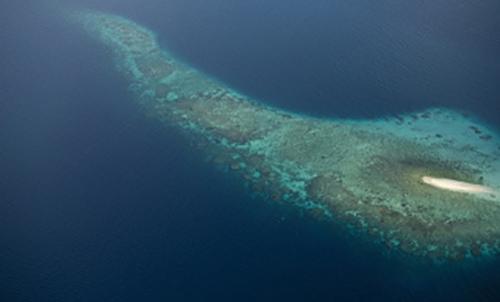UN climate talks brought forward as new report warns of peril
Negotiations for a world pact to curb global warming will start in Paris Sunday, a day ahead of schedule, the UN said Wednesday as a report warned 2015 could become the hottest year on record.
The crunch UN summit will be officially opened by more than 150 heads of state and government on Monday as planned, making it the biggest gathering of world leaders on climate in history.
But negotiators will already meet at the conference venue from Sunday, the UN's climate change secretariat said.
An early start "will offer an opportunity to make the best possible use of the very limited time available to finalise negotiations," it said in a statement.
Negotiators are tasked with sealing a deal that will cap average global warming at two degrees Celsius (3.6 degrees Fahrenheit) over pre-Industrial Revolution levels.
But the haggle has been notoriously long and complex, hampered by rows over how to share the burden of curbing fossil-fuel gases that stoke warming.
Key issues -- ranging from finance to the legal status of the accord -- need to be settled by the time the conference closes on December 11.
The European Union warned Wednesday there was "still a lot of work" to do and feared a lowest-common-denominator outcome.
The current draft text "is too long and too complex," EU Climate Commissioner Miguel Arias Canete said.
"Let me be very frank with you today: we will have a deal in Paris. Of that, I have no doubt. But my worry is that we may end up having a minimalistic agreement."
The fragile state of Earth's climate system was underlined in a report by the UN's weather agency in Geneva, warning of record high temperatures.
Based on data for the first 10 months of the year, "we feel very confident... that 2015 will be the warmest year on record," said World Meteorological Organization (WMO) chief Michel Jarraud.
The WMO said land and sea temperatures were likely to surpass previous records shattered last year.
And 2011-2015 marked the hottest five-year period ever measured, at 0.57 C above the 1961-90 average.
"This is all bad news for the planet," Jarraud told reporters.
The WHO usually waits to have a full year's worth of data before drawing such conclusions but said it wanted the findings "to inform negotiators" at the UN climate talks.
The WMO said the global average surface temperature this year would likely pass "the symbolic and significant milestone" of 1 C.
- 'Time not on our side' -
"We have already warmed the atmosphere by more than half" of the 2 C allocation, said Jarraud.
"This is of great concern," he said, also pointing out that greenhouse-gas concentrations in the atmosphere also broke a new record this year.
These gases can linger for centuries, continuing to warm the atmosphere long after emissions are cut.
"Time is really not on our side," Jarraud said. "We have the knowledge and the tools to act. We have a choice. Future generations will not."
Scientists warn that on the basis of voluntary national pledges to curb carbon emissions, Earth is on track for warming of 3 C.
The agency said the global ocean temperature also reached new highs in the upper 700-metre (2,300-foot) and 2,000-metre layers.
Oceans absorb more than 90 percent of the energy from humankind's greenhouse gas emissions.
Sea levels in the first half of the year, meanwhile, appeared to be "the highest since satellite observations became available in 1993."
"We have really broken records almost everywhere," Jarraud said.
- El Nino worries -
The soaring temperatures come as El Nino, a natural phenomenon that sparks global weather extremes, is at its strongest in more than 15 years, and gaining strength.
El Nino, which occurs every two to seven years, tends to naturally hike temperatures, and the WMO said it was not clear how much of this year's record heat could be attributed to the phenomenon.
Analysis over longer periods, however, clearly reveals a "systematic trend" of warming.
El Nino years are growing hotter, and even the counter-phenomenon La Nina, which tends to bring cooler temperatures, is far warmer than a few decades ago, Jarraud said.
"What we call a cold year now would have been considered a record warm year before 1997," he added.
The impact of climate change on the frequency and strength of extreme weather events, especially heatwaves, is becoming increasingly clear, the agency said.
France said Wednesday it would deploy some 11,000 police to secure the UN climate summit, hosted in a city still reeling from November 13 jihadist attacks which killed 130 people.
Related Posts

